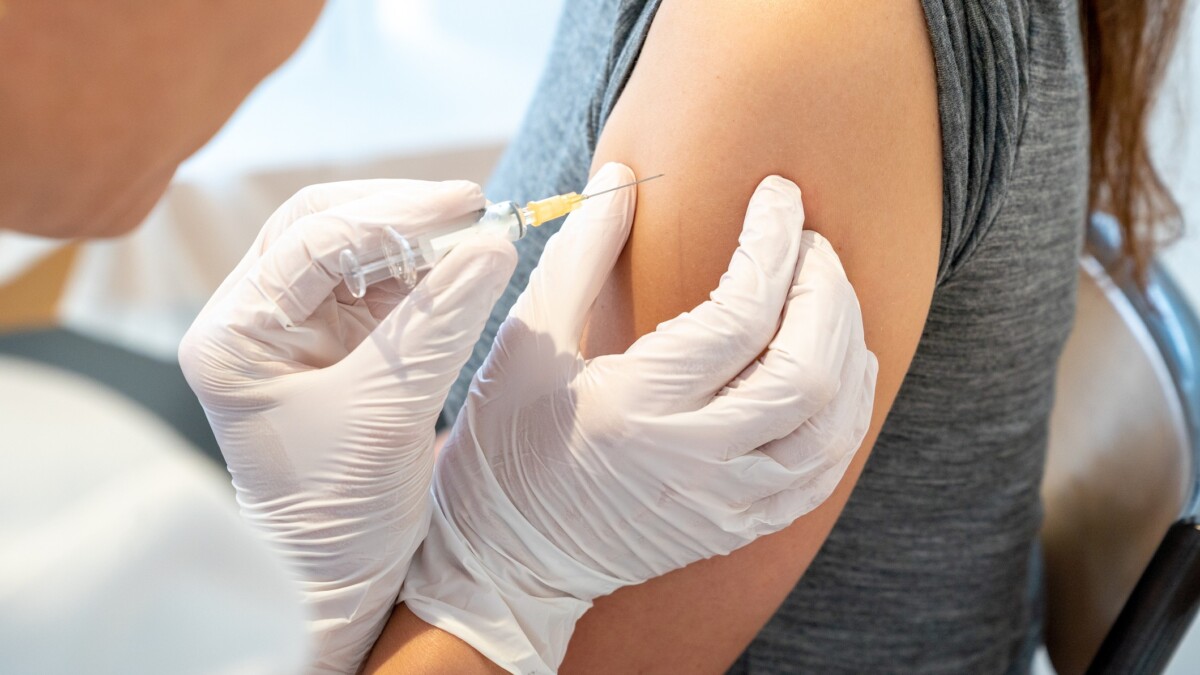Originally published in February 2025 and updated in October 2025
Respiratory syncytial virus (RSV) in healthy individuals often presents with mild symptoms, but for infants and older adults, RSV can be dangerous. These vulnerable populations are at increased risk of severe outcomes from RSV, such as bronchiolitis, pneumonia, exacerbation of underlying health conditions, hospitalization, and death.
In the past, options to prevent RSV in vulnerable populations were limited, but recent advancements in RSV prevention have transformed the landscape of care. Now, patients, caregivers, and healthcare professionals have access to preventative options that help protect the most vulnerable patient demographics from severe complications of RSV.
Pharmacists, as accessible and trusted healthcare professionals, play a critical role in guiding patients and caregivers to make informed decisions about RSV prevention and navigating the latest preventative therapies.
RSV in Infants and Pregnancy
Most infants (68%) are infected in the first year of life and nearly all (97%) by 2 years old, which highlights the urgent need for protection early in life.(2) Infants and young children face a significantly higher risk of severe RSV outcomes, including hospitalization, due to their developing immune systems. RSV is responsible for approximately 16 times more hospitalizations in young children than influenza and is ranked as the third leading cause of lower respiratory deaths in children younger than five years of age. Alarmingly, over half of RSV-related hospitalizations in children occur in those under six months of age, with the highest rates observed in the first three months of life.
Historically, Synagis® (palivizumab) was the only option for protecting high-risk infants against RSV infections. Health Canada has now approved two additional preventative therapies to enhance RSV protection in infants: Beyfortus® and Abrysvo™.
| Therapy | Type | Indicated population(s) | Schedule and doses | Notes |
|---|---|---|---|---|
| Synagis® palivizumab | Monoclonal antibody | Infants with certain high-risk conditions. | Maximum 5-dose schedule (every 28 to 30 days during anticipated periods of RSV risk). | Not indicated for adult use. Compared to palivizumab, nirsevimab has an extended half-life and comparable, or potentially better, protective efficacy. No longer publicly funded. |
| Beyfortus® nirsevimab | Long-acting monoclonal antibody | Newborns and infants born during or entering their first RSV season, and for high-risk children up to 24 months of age in their second RSV season. | Single dose per RSV season (a single dose can protect against RSV for at least 5 months, the typical length of an RSV season). | Not indicated for adult use. First-line agent for infant protection against RSV. |
| Abrysvo™ RSVPreF | Stabilized prefusion F protein vaccine (unadjuvanted) | Pregnant individuals at 32–36 weeks' gestation; adults ≥60. | Single dose. | Protective antibodies are transferred to the fetus, safeguarding newborns during their first 6 months of age. Compared to RSVpreF, nirsevimab may be slightly more effective and may offer a longer duration of protection. |
The National Advisory Committee on Immunization (NACI) recommends Beyfortus® (nirsevimab) as the first-line therapy for infant protection against RSV due to its proven efficacy, safety, and duration of protection. Organizations such as the FMWC Maternal RSV Task Force and the Society of Obstetricians and Gynecologists of Canada (SOGC) emphasize a shared decision-making approach between parents and healthcare providers, considering factors such as product availability, timing of administration, cost-effectiveness, and practical implementation.
Both maternal vaccination and infant immunization have been shown to effectively reduce RSV-related complications, and either option may be appropriate depending on individual circumstances. Immunization of both the pregnant woman and the infant is not recommended except under specific circumstances. If Beyfortus® (nirsevimab) is expected to be given to a healthy infant, Abrysvo™ (RSVpreF) during pregnancy may not offer additional benefits.
Both Beyfortus® and Abrysvo™ are publicly funded through the Infant and High-Risk Children RSV Prevention Program in Ontario.(5) The province will fully cover the cost of immunization to help protect the following:
- Infants born on or after April 1 and aged less than 8 months at the time of immunization.
- Children up to 24 months of age who meet high-risk criteria for severe RSV disease through their second RSV season.
Pending product availability, the program is expected to begin in hospitals, primary care providers, or local public health units starting October 2025. Pharmacy professionals are now authorized to administer the RSV vaccine; however, pharmacists do not have direct access to the publicly funded RSV vaccine supply. Individuals who have a prescription and get Abrysvo™ at their local pharmacy will have to pay out of pocket for the vaccine.
RSV Vaccines in Adults
In recent years, the RSV vaccine landscape for adults has evolved significantly. As of Fall 2025, Health Canada has authorized three RSV vaccines for adults:
| Vaccine | Platform/formulation | Adjuvant | Indicated population(s) |
|---|---|---|---|
| Arexvy™ | Protein subunit: RSVPreF3 (pre-fusion stabilized F protein trimer-based) | AS01E | Adults ≥60; adults 50–59 who are at increased risk for RSV disease. |
| Abrysvo™ | Protein subunit: RSVPreF (pre-fusion stabilized F protein from RSV) | None (unadjuvanted) | Adults ≥60; pregnant individuals at 32–36 weeks' gestation. |
| mRESVIA™ | RNA-based: mRNA-1345 (delivers preF via an mRNA platform) | N/A | Adults ≥60, however it is not currently included in Ontario’s publicly funded RSV prevention programs. |
The evidence suggests that using RSVpreF, RSVPreF3 and mRNA-1345 may result in similar reductions in hospitalizations associated with RSV and medically attended RSV respiratory tract infection (RTI) for adults 60 years of age and older.
NACI Recommendations
- Adults ≥75 years: Single dose recommended, particularly for those with chronic health conditions who are at increased risk of severe RSV disease.
- Adults ≥60 years in chronic care facilities or nursing homes: Single dose recommended.
- Adults 50–74 years: Consider vaccination on an individual basis in consultation with a healthcare provider.
Currently, only a single dose is recommended by the National Advisory Committee on Immunization (NACI). Studies show protection lasting beyond one RSV season for several years. Ongoing studies are underway to determine the need for a booster dose(s).(5,13,18)
Ontario’s RSV Prevention Program
As of the week of September 22nd, 2025, high-risk Ontario residents age 60–74 years old who meet certain criteria or live in specific higher-risk settings are eligible to receive RSV vaccines (Arexvy™ and Abrysvo™) as part of the province’s recent expansion to the adult RSV prevention program.
Eligibility for publicly funded RSV immunization:
- Adults ≥75 years.
- Adults 60–74 years who are high-risk (e.g., residents of long-term care, immunocompromised, chronic organ disease, recipients of organ or stem-cell transplants, First Nations, Inuit, Métis, or experiencing homelessness).
Older adults who are indicated for an RSV vaccine, but do not meet the eligibility criteria for the publicly funded RSV programs, can privately purchase an RSV vaccine at a pharmacy with a prescription (Schedule I products under the NAPRA National Drug Schedule). Pharmacies can administer RSV vaccines to eligible adults ≥5 years old, but administration costs for privately purchased vaccines may vary.
Conclusion
Pharmacists are uniquely positioned to educate caregivers and patients on the various preventative RSV options available in Ontario. By staying informed about the latest guidelines and products, pharmacists can continue to provide trusted and proactive healthcare, ensuring that vulnerable patients receive optimal care.
Disclaimer: This blog post was developed by the Ontario Pharmacists Association (OPA) with a grant provided by GlaxoSmithKline Canada (GSK), Pfizer, and Sanofi. The information provided in the blog is intended to provide pharmacists with general information and is not intended to provide or take the place of medical advice, diagnosis or treatment, or professional judgement. It is intended to supplement materials provided by regulatory authorities, and should there be any discrepancies, municipal, provincial, and federal laws, policies, and guidelines shall prevail. The information provided in this document are current at the time of publication. The decision for use and application of this document is the responsibility of the user. OPA expressly disclaims responsibility, and shall have no liability for any damages, loss, injury, or liability whatsoever suffered as a result of reliance on the information contained in this resource.
References
- Abrams EM, Doyon-Plourde P, Davis P, Brousseau N, Irwin A, Siu W, Killikelly A. Burden of disease of respiratory syncytial virus in infants, young children and pregnant women and people. Can Commun Dis Rep. 2024;50(1/2):1–15. doi:10.14745/ccdr.v50i12a01
- Centers for Disease Control and Prevention. Evidence to recommendations: RSV in infants. https://www.cdc.gov/acip/evidence-to-recommendations/clesrovimab-infants.html?utm_source=chatgpt.com
- Government of Canada. National Advisory Committee on Immunization (NACI). Statement on the prevention of respiratory syncytial virus (RSV) disease in infants. May 17, 2024. Available from: https://www.canada.ca/content/dam/phac-aspc/documents/services/publications/vaccines-immunization/national-advisory-committee-immunization-statement-prevention-respiratory-syncytial-virus-disease-infants/naci-statement-2024-05-17.pdf
- Government of Canada. National Advisory Committee on Immunization (NACI). Summary of recommendations for RSV prevention in infants. 2025. Available from: https://www.canada.ca/en/public-health/services/reports-publications/canada-communicable-disease-report-ccdr/monthly-issue/2025-51/issue-4-april-2025/summary-naci-statement-prevention-rsv-infants.html
- Ontario Ministry of Health. Respiratory Syncytial Virus (RSV) Program for High-Risk Infants. https://www.ontario.ca/page/respiratory-syncytial-virus#:%7E:text=2023%20RSV%20season-,Through%20the%20Respiratory%20Syncytial%20Virus%20Prophylaxis%20for%20High%2DRisk%20Infants,2%20years%20of%20age
- Bourdeau M, Vadlamudi NK, Bastien N, et al. Pediatric RSV-associated hospitalizations before and during the COVID-19 pandemic. JAMA Netw Open. 2023;6(10):e2336863. doi:10.1001/jamanetworkopen.2023.36863
- Abrysvo™ Product Monograph. 2023. Available from: https://pdf.hres.ca/dpd_pm/00073900.PDF
- Beyfortus™ (nirsevimab) Product Monograph. 2023. Health Canada. Available from: https://pdf.hres.ca/dpd_pm/00075966.PDF
- Public Health Agency of Canada. Respiratory syncytial virus (RSV) vaccines: Canadian Immunization Guide. Ottawa (ON): Government of Canada; August 2024. Available from: https://www.canada.ca/en/public-health/services/publications/vaccines-immunization/canadian-immunization-guide-respiratory-syncytial-virus-rsv-vaccines.html
- Society of Obstetricians and Gynaecologists of Canada. SOGC Statement on RSV Immunization to Prevent Infant RSV Infection. July 2024. Available from: https://sogc.org/common/Uploaded%20files/Position%20Statements/SOGC%20Statement%20RSV_07182024_EN.pdf
- The Federation of Medical Women of Canada (FMWC) Maternal RSV Task Force. Respiratory Syncytial Virus (RSV): Recommendations for the Prevention of Disease in Infants for the 2024–2025 RSV Season. June 2024. Available from: https://fmwc.ca/content/user_files/2024/06/FMWC-Maternal-RSV-Task-Force-White-Paper-_-Final-June-27th.pdf
- Arexvy™ Product Monograph. 2023. Available from: https://ca.gsk.com/media/6988/arexvy.pdf
- Government of Canada. National Advisory Committee on Immunization (NACI). Statement on the prevention of respiratory syncytial virus (RSV) disease in older adults. July 12, 2024. Available from: https://www.canada.ca/en/public-health/services/publications/vaccines-immunization/national-advisory-committee-immunization-summary-statement-prevention-rsv-disease-older-adults.html
- Government of Canada. National Advisory Committee on Immunization (NACI). Updated guidance on RSV vaccines in older adults, including expanded use of RSVPreF3 in individuals 50–59 years. 2025. Available from: https://www.canada.ca/en/public-health/services/reports-publications/canada-communicable-disease-report-ccdr/monthly-issue/2025-51/issue-8-august-2025/summary-naci-statement-prevention-rsv-older-adults.html
- Ontario Ministry of Health. Ontario Protecting Communities From Respiratory Illnesses. September 18, 2025. Available from: https://news.ontario.ca/en/release/1006482/ontario-protecting-communities-from-respiratory-illnesses
- Ontario Ministry of Health. COVaxON & Publicly Funded Immunization Guidance for 2025–26 RSV Season. 2025.
- National Association of Pharmacy Regulatory Authorities (NAPRA). National Drug Schedules Update – RSV Vaccines. 2025.
- Goldstein M, Smith B, Lee C, et al. Maternal immunization against RSV: impact on infant outcomes. Am J Obstet Gynecol. 2023;229(6):S0002-9378(23)00801-3. doi:10.1016/j.ajog.2023.08.001
- Moderna. mRESVIA™ Product Monograph. 2025. Available from: https://pdf.hres.ca/dpd_pm/00077692.PDF

